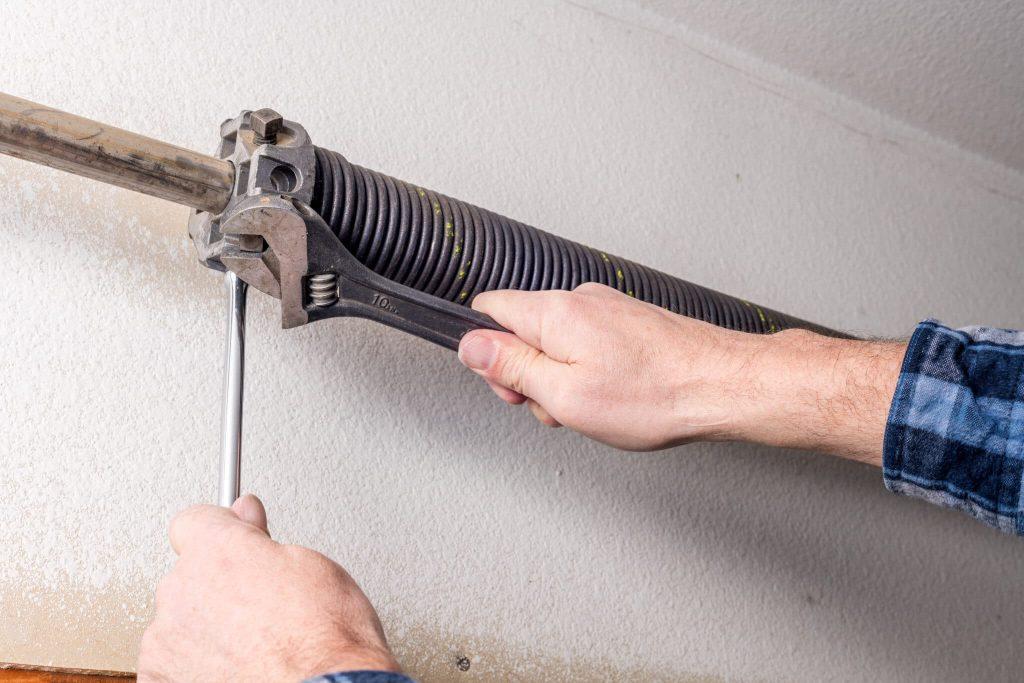How Often Do Garage Door Springs Need To Be Replaced? Garage door springs are unsung heroes of our daily lives. They diligently lift and lower the heavy garage door countless times, allowing us to access our vehicles and belongings with ease. However, like all components, garage door springs have a finite lifespan. In this article, we’ll explore the critical factors that influence the longevity of these essential components and answer the burning question: How often do garage door springs need to be replaced?

The Basics of Garage Door Springs
Before we delve into replacement intervals, it’s essential to understand the two main types of garage door springs:
- Torsion Springs: Torsion springs are typically mounted above the garage door and wind and unwind to lift and lower the door. They come in various sizes and configurations, depending on the weight and size of the door.
- Extension Springs: Extension springs are mounted on either side of the door track and stretch and contract to provide the lifting force. These springs are found on older garage doors.
The Factors Influencing Lifespan
Several factors affect the lifespan of garage door springs. Understanding these factors will help you determine when it’s time for replacement:
- Quality of Springs: The quality of the springs you install is a significant factor. High-quality springs are designed to last longer, so investing in quality is a wise choice.
- Frequency of Use: The more you use your garage door, the more wear and tear the springs endure. A typical torsion spring is rated for about 10,000 cycles, which roughly translates to 7-10 years of use for an average household.
- Maintenance: Regular maintenance, including lubrication and inspections, can prolong the lifespan of your garage door springs. Neglecting maintenance can lead to premature wear and tear.
- Environmental Conditions: The climate and environment in which you live can impact the springs. Extreme temperatures, humidity, and exposure to harsh elements can accelerate wear and tear.
- Spring Type: Torsion springs generally have a longer lifespan compared to extension springs. Torsion springs are more common in modern garage door systems due to their durability and reliability.
When to Replace Garage Door Springs
While there is no one-size-fits-all answer to how often garage door springs should be replaced, there are some signs to watch for:
- Visible Wear and Tear: Inspect your garage door springs regularly. If you notice visible signs of wear, such as rust, gaps, or deformation, it’s time to consider replacement.
- Difficulty Opening or Closing: If your garage door struggles to open or close, it could be a sign that the springs are losing their strength and need replacement.
- Loud Noises: Unusual and loud noises when operating the garage door, such as screeching or popping, can indicate worn-out springs.
- Uneven Movement: When the door doesn’t move smoothly and evenly, it’s a sign that the springs may be failing.
- Age: If your garage door springs are over ten years old, it’s a good idea to proactively consider replacement, even if they haven’t shown signs of wear.
DIY vs. Professional Replacement
While some skilled DIY enthusiasts may attempt to replace garage door springs themselves, it’s generally recommended to leave this task to professionals. Replacing garage door springs can be dangerous due to the high tension involved. Professional technicians have the experience and tools to safely perform the replacement.
Conclusion
Garage door springs play a crucial role in the smooth operation of your garage door. Lifespans vary based on factors; monitor for wear and replace as needed. Regular maintenance, professional inspections, and using high-quality springs can help ensure the longevity and reliability of your garage door system.



Leave a Reply